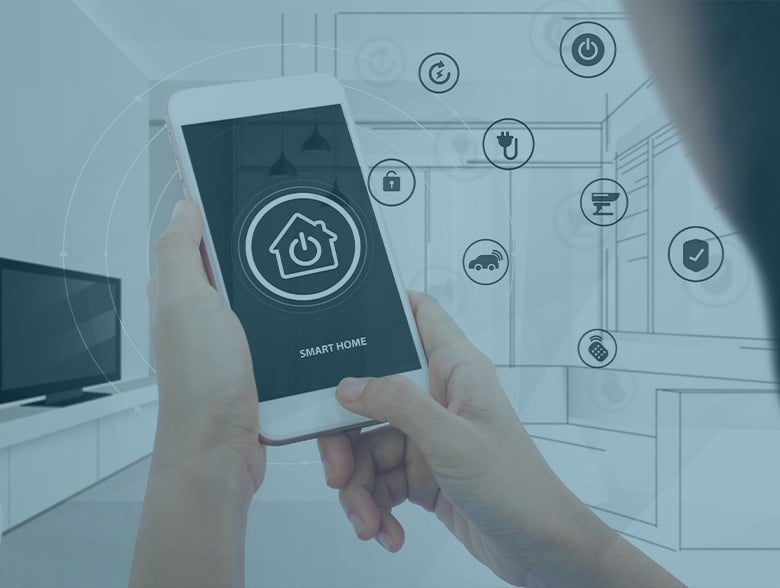By Craig Thole, SVP, Product Development and Operations at Assurant, Inc.
While the rise of internet-enabled smart home devices generates the opportunity to create an advanced, intuitive smart home ecosystem, at the same time their arrival also creates the conditions for more security vulnerabilities within the connected home. This fact isn’t lost on consumers: according to Assurant and Parks Associates’ most recent white paper – ‘Protect the Connected Home: Home security Meets Personal Privacy’ – 72 percent of consumers are now preoccupied with the security of their smart home products and their network in general. With news of hacks and unauthorised access to personal data increasingly fueling consumer concerns about the inherent vulnerabilities of connected devices and systems, many are left wondering what options are available to allow them to prioritise their household’s data security and privacy. Consumers want to know that their homes and families are safe from intruders (both physical and virtual) and that their digital identities and personal data cannot be compromised and will remain out of the hands of nefarious actors.
Against the backdrop of an ever-evolving and dynamic threat landscape, consumers might now be persuaded to turn their attention towards the personal-data privacy solutions and security service options that deliver the most advanced safeguarding and home monitoring systems. In the last few years, reported instances of smart home attacks have seen hackers remotely controlling smart lights and smart TVs, unlocking IoT enabled doors, and remotely turning on and streaming video from smart cameras. Now there is a growing awareness that despite the prevalence of smart home devices for the purpose of protecting homes against theft, damage, or accidents, smart home devices also represent a real risk in terms of lowering personal data security. When it comes to protecting the entire connected home, home security dovetails neatly with personal privacy in a way that makes the meaningful expansion of peace-of-mind offerings the next logical step in the evolution of device protection services. In this context, home security providers are well positioned to devise combined bundles of device protection plans and data privacy services, thereby allowing them to leverage their skills, assets, and service relationships founded on trust with customers that provide them with the right to make these offers. The long-term consequences of this development include lowering the barrier to wider smart device adoption, an increased positive perception of product value, and increased consumer confidence when it comes to adopting new products.
Data security and privacy: ensuring future smart home success.
The majority of consumers are concerned about data security, and their concern is warranted and supports their need to be vigilant. Parks Associates found that of the consumers they polled during the course of their research, approximately one-half of those with connected devices have experienced at least one data privacy and security issue. As device users continue to accumulate products to build-out their connected homes, the risk of becoming a target for acts of privacy invasion or a victim of hacking also rises. The natural fears related to this evolution are also supported by the research, with almost three-quarters of households signaling concern or high concern about the presence of spyware and viruses finding their way onto their smart devices and subsequent malicious interference and disruption.
As the consumer data highlights, a typical home has 16 connected devices with smart home device owners owning an average of eight smart home devices in total. While the increased adoption of such devices is a positive development for the broader connected home market, integrating a growing number into one’s smart home set-up also adds to the level of risk and the number of problems experienced. In fact, for those with multiple smart home devices, the higher the anxiety about data privacy tends to be.
Clearly, with the rapidly developing connected device environment taking shape and the inevitable corresponding emergence of threats, it’s time to rethink the comprehensive security and device protections on offer.
New solutions to old problems
The existence of real concerns regarding privacy and unauthorized access to smart devices have the power to stymie the connected smart home dream before it really has a chance to take flight. For this reason, leading tech giants, OEMs, and other disruptive smart device start-ups need to address the issues head on and come up with satisfactory and practical solutions to guarantee that consumer data remains fully protected at all times. And with concerns over data vulnerability and privacy serving as a barrier to consumers acquiring devices, cybersecurity and similar holistic protection features could be instrumental in enticing “on-the-fence” customers to explore and commit to device purchases that will allow them to embrace the connected home model. The addition of a monitoring subscription on top of such purchases could make all the difference in terms of winning the hearts and minds of consumers.
The companies that are now tentatively investigating the opportunity of value-added services to serve the smart home market need to think strategically when conceptualizing and devising these new offerings. As the objective is to alleviate the fears of existing and potential connected device owners, they must appeal to two different constituencies: the uninitiated prospective purchasers and the existing owners of smart devices. Depending on how they go about designing, tailoring, and selling these bundles, such companies have the power to influence how all consumers use their smart home devices in a way that achieves maximum value and satisfaction. Additionally, they may also be able to fulfil the role of ‘trusted advisor’ in supporting consumers to choose their additional future smart home devices in the future.
Building trust in the smart home
The on-going and largely unaddressed uncertainty surrounding the safety and privacy of connected devices and their associated data has led to increased interest in add-on security services for smart devices. With only 37 percent of consumers trusting the companies that have access to their personal data, the technology companies looking to offer security add-on services have a significant task on their hands to earn their confidence. But at least they have a captive audience: as the white paper underlines, 67 percent of consumers report interest in a cyber security add-on from the security provider that guarantees their equipment cannot be monitored or controlled by unauthorised people. Smart home customers see the value of increased protection and privacy in their home, and as a result may be ready to respond positively to a comprehensive bundle of value-added services.
Delivering peace-of-mind services to restore confidence in the smart home vision
Fundamentally, security providers and the manufacturers of smart home devices have the opportunity to add value to their existing service offerings by transcending simple monitoring solutions and diversifying into additional service elements that deliver peace-of-mind to customers. These include self-monitoring alerts, premium technical support (‘White Glove service’), advanced data privacy solutions, video storage and warranties. Offering this type of ongoing and reliable technical support beyond the onboarding process and instalment of smart home devices not only incentivises consumers to build-out their smart home by purchasing new devices, it also strengthens the customer relationship. At the same time, those companies whose ambition it is to deliver comprehensive security, both for the home that the system is contained in, as well as the devices that comprise the security bundle, have the opportunity to positively reset consumer expectations in relation to the management of their security and privacy concerns.
Fortifying the secure smart home of the future, today
As smart home and security devices continue to grow in adoption and use, concerns around data security and privacy amongst consumers will also persist. Owners of smart homes require security systems that deliver peace of mind and the assurance that their smart devices will operate seamlessly and securely. In light of this, many consumers may be drawn to the security providers that are demonstrably taking steps to improve data privacy and minimize the risk of security breaches within the smart home. As a result, holistic privacy protection is a valuable add-on service that can restore the confidence of both potential and existing users of smart security systems and devices. Additionally, these add-on services will entice consumers to see new value in this next-generation premium support, add stickiness and satisfaction through the services provided, and strengthen brand loyalty.
About the Author
 Craig Thole is the Senior Vice President of Product Development and Operations at Assurant, a Fortune 500 Company. Assurant is a leading global business services company that supports, protects and connects major consumer purchases. Craig can be reached via Assurant.com.
Craig Thole is the Senior Vice President of Product Development and Operations at Assurant, a Fortune 500 Company. Assurant is a leading global business services company that supports, protects and connects major consumer purchases. Craig can be reached via Assurant.com.


